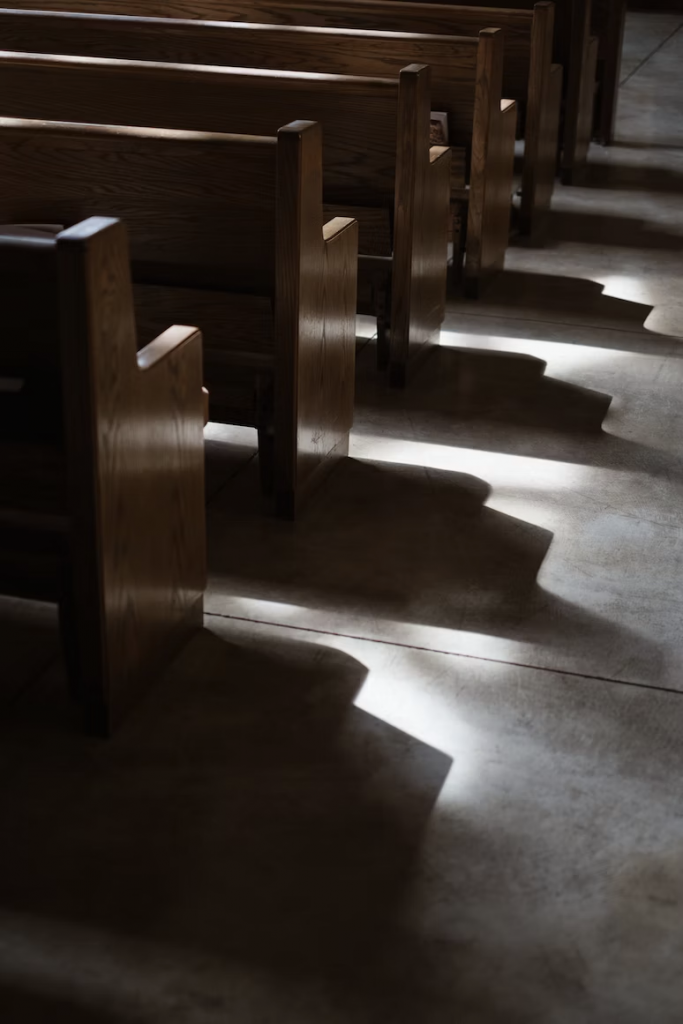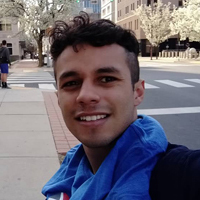by Andrés Castillo
In February I spent a day brushing up on my Russian at the home of Pavel and Marina, leaders of the Shores of Hope community in West Palm Beach, Florida. Shores of Hope is a ministry that accompanies and ministers to Ukrainian and Russian refugees in the area, as well as other Russian speakers who grew up in the USSR.
I watched as Tajik friends cooked an aromatic feast of plov (pilaf) and okroshka soup. Homemade Pad Thai joined the spread later. I joined Pavel in a surprise duet—him on balalaika, me on guitar—of Russian folk songs. Monolingual English speakers, second-generation Russian-Americans, first-generation Russian immigrants and Tajiks sat around the living room and shared what was on our hearts and minds and learned about each other’s lives.
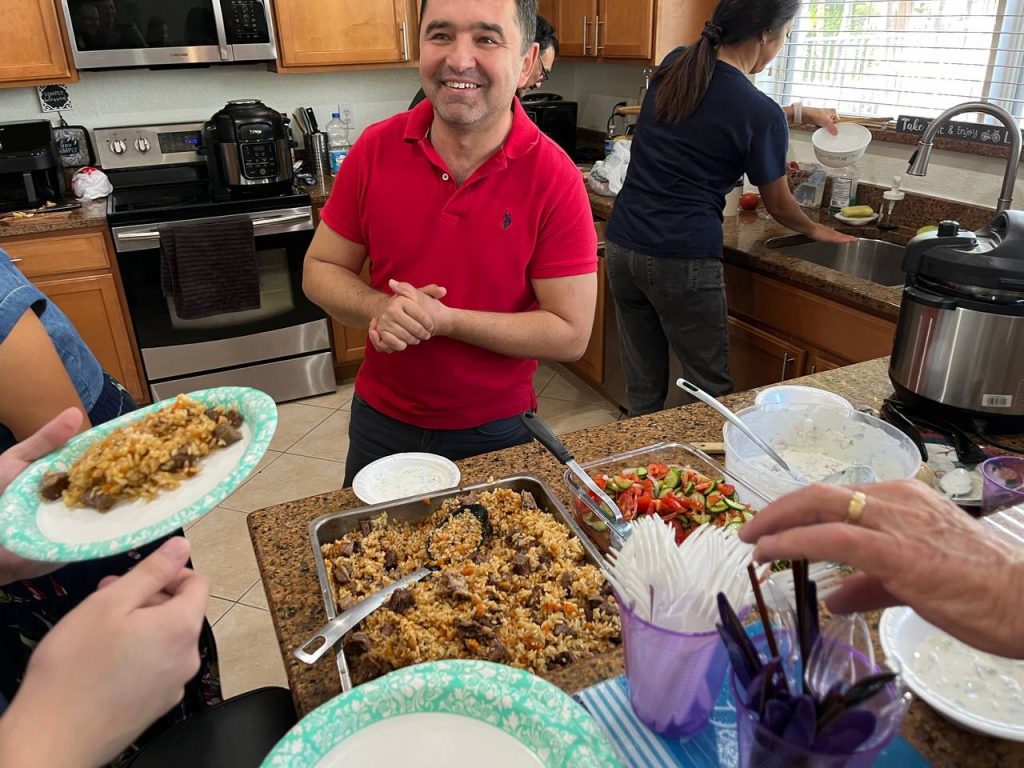
It was international yet intimate.
Shores of Hope’s partnership with Mosaic was clear after the first Support Group meeting with Mosaic staff members. At the meeting, Pavel told Shores of Hope’s story:
“Giving hope and uniting people is our motto,” Pavel says. “We began to meet a lot of people from Ukraine and Russia who were seeking refuge in the U.S. We felt heartbroken about the situation.
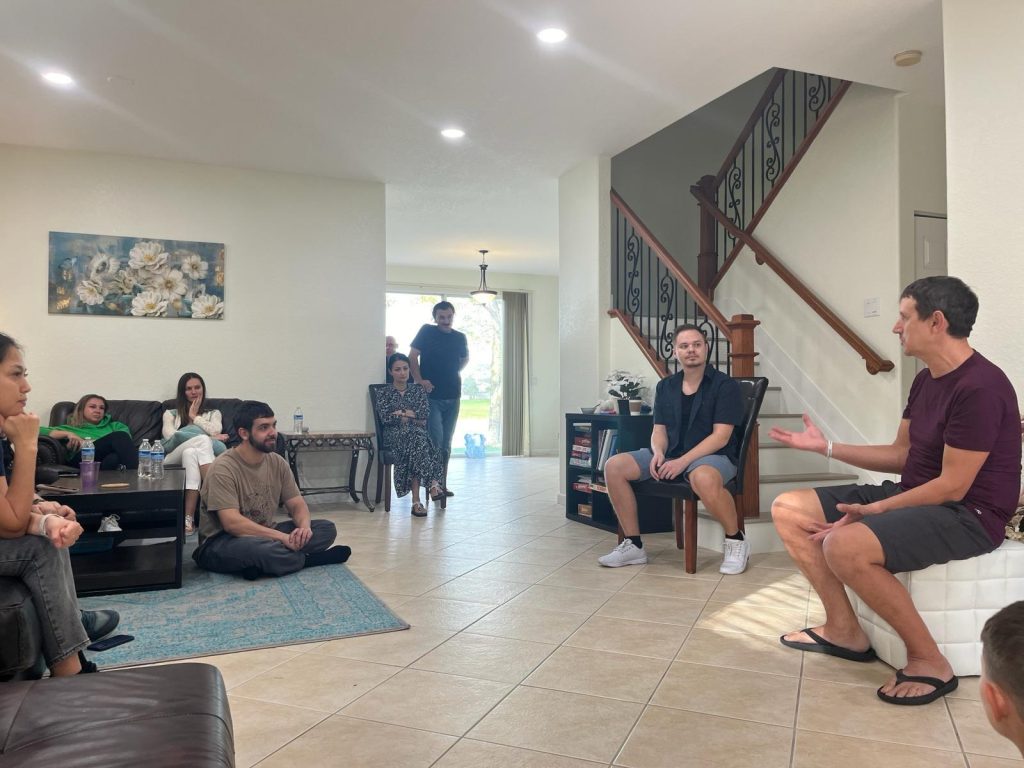
We became part of a small Slavic bible study. We asked them if they would be interested in helping spread the Gospel here in Florida and we organized a Christmas concert.
People in Ukraine are fleeing war, and they need someone that will just love them. The Christmas concert made us realize that God wants us to do this.
We were in awe of seeing different doors open. We were able to meet many families and welcome them into our home, just to have dinner or talk. Many immigrant families are interested in coming to our home for events.”
Pavel also shared other aspects of Shores of Hope’s mission:
“One of our hopes is not just to raise funds for refugee families, but also start a business club to help them learn about the U.S. economic system and what they want to do.
We also want to address issues related to the war. We are against this war, and we have intentional, challenging conversations in our home with Ukrainians and Russians alike.
We embrace those who are connected somehow to the Russian language or have an interest in our culture. Meetings and events are held in Russian, and you will find that there is a strong connection between those who grew up in the Soviet Union.”
Marina and Pavel are currently awaiting work authorization, which will help them financially and make certain processes more efficient. They will continue to host gatherings in their home and minister to the Shores of Hope community.
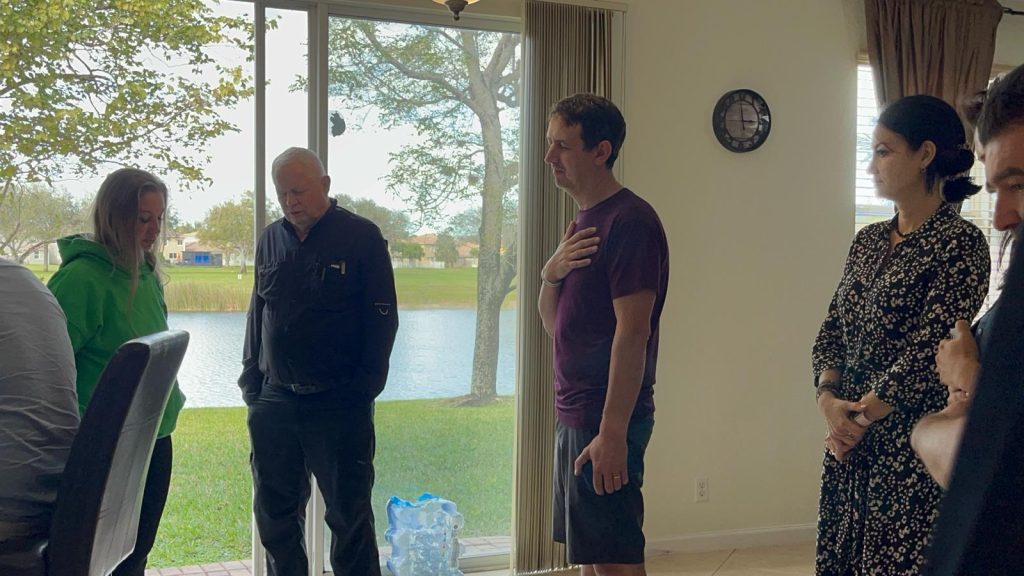
“I have very little free time, but I feel blessed to live here in the U.S. and have certain freedoms,” shares Pavel. “We never dreamed that we would know you [Mosaic]. We are grateful that you and MCUSA want to be a part of our lives and believe in what we do. It’s divine encouragement for us.”
Marina and Pavel have been married nearly 25 years and have two children, Pavel (11) and Anastasia (9). Marina enjoys managing Airbnb properties, but for most of her life she has been involved in ministry and enjoys that even more. Pavel studies at Palm Beach Atlantic University. He recently took up a chaplaincy role at a hospice facility and an interim pastorship at Homestead (FL).

Andrés Castillo
Andrés Castillo is the Intercultural Communication Associate for the Conference. Andrés lives in Philadelphia, PA, and currently attends Methacton Mennonite Church. He loves trying new food, learning languages, playing music, and exploring new places.

